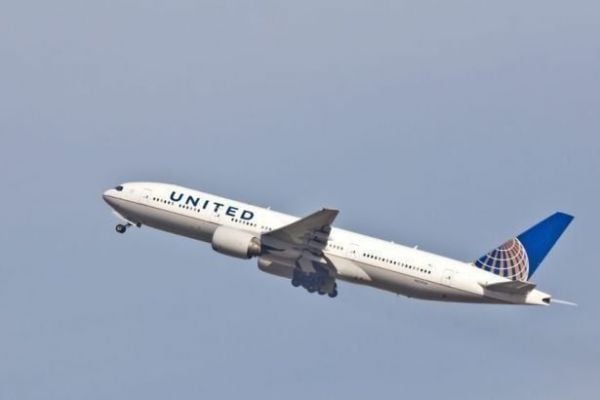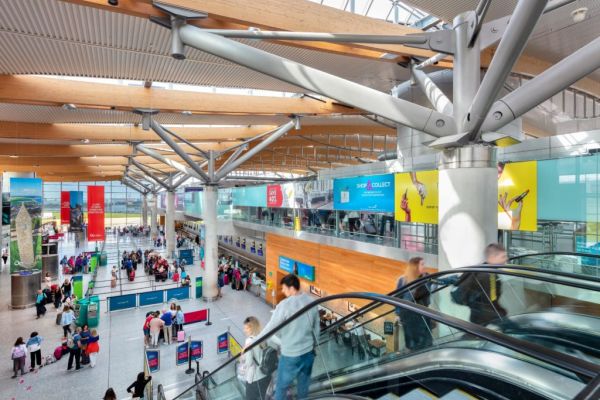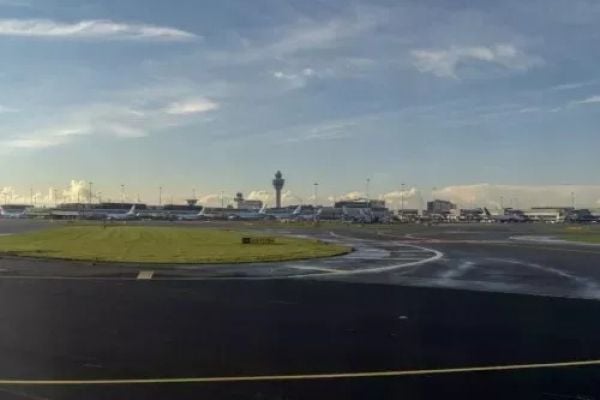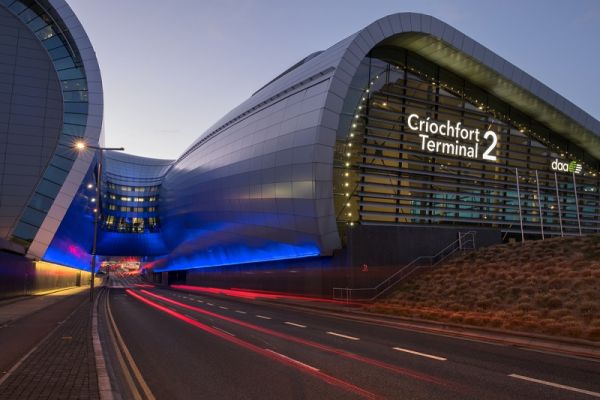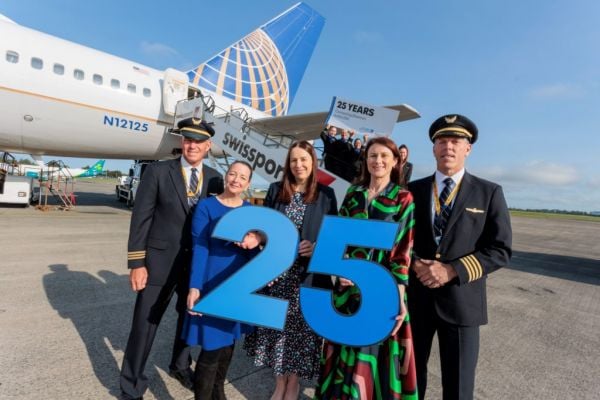United Airlines has said that it is moving forward with plans to outsource its catering operations following a six month review, similar to other airlines' strategies.
United said that it has selected three suppliers to operate the airline's five kitchens and oversee menu design and administration.
The airline's staff were informed of the decision in a memo reviewed by Reuters. Employees in good standing will be offered a job at one of the future suppliers and approximately 70% will continue to have union representation, according to the memo.
"We wanted to proceed in a way that allowed us to protect the vast majority of jobs for our United catering team members, and invest in solutions that significantly improve our customers' onboard experience," United's VP of customer innovation and strategy and catering, Mandeep Grewal, told staff.
United is expecting to initiate the transition in October - when federal payroll aid that prohibited airline job cuts expires - and to be working with its new partners by mid-November.
Electric Aircraft Start-Up Archer Says Its Enterprise Value Has Been Cut By $1bn
Meanwhile, Electric aircraft startup Archer's enterprise value has been cut by $1 billion to $1.7 billion as part of a revised deal, Archer and blank-check firm Atlas Crest Investment Corp have said.
The move comes at a time of growing regulatory concerns over blank-check firms or special-purpose acquisition companies (SPACs) taking many companies, often loss-making or even without revenue, public at too-high valuations.
SPACs allow investors to list a shell company on public markets before they have identified a business to buy, which provides a speedier alternative to a traditional initial public offering (IPO) route.
In excess of $115.6 billion has been raised via more than 400 SPACs this year, mainly on Wall Street where SPACs make up two thirds of all IPOs.
Archer, which makes electric aircraft with vertical take-off and landing, said in February that it would go public through a merger deal with Atlas Crest.
The combined company is still expected to receive approximately $1.1 billion of gross proceeds as part of the deal, Archer and Atlas said.
Archer has also appointed former United Airlines chief executive officer Oscar Munoz to the company's board.
Archer has previously said that it has an order from United Airlines worth $1 billion and an option for an additional $500 million of aircraft.
"We look forward to deepening our work with this innovative company as they develop an urban mobility solution that could transform how customers commute within United's hub cities," a United Airlines spokesperson said.
Atlas declined to provide further details on the new deal, and Archer did not respond to a Reuters request for comment.
Private Aviation Eyes Limited Direct Flights To Lure Execs
In other aviation industry news, private aviation companies are making a beeline for executives wary of flying commercial to business meetings due to a limited offering of direct flights, as corporate travel eases back this fall after a pandemic-induced slump.
Private air traffic has rebounded above 2019 levels, helped by wealthy leisure travellers avoiding commercial earlier in the pandemic to avoid contracting the virus or due to fewer direct flights.
Now, some charter companies are trying to extend that advantage to corporate travel, with scheduled flights to some business hubs still below 2019 levels despite a broader leisure-driven rebound in commercial traffic.
Corporate plane makers such as General Dynamics Corp's Gulfstream Aerospace and Textron Inc are boosting production as demand rises. Rival Bombardier reported earnings earlier this week.
Corporate travel, expected to revive this fall, is crucial for aviation because of demand from frequent flyers and airlines' appetite for higher-margin premium fares.
But a full recovery could take years due to remote work and rising US COVID-19 cases driven by the more aggressive Delta variant of the virus.
Major US carriers are restoring routes as restrictions ease. Delta Air Lines will more than double the number of daily flights between the US and Canada starting in September, once fully-vaccinated Americans can fly to the country.
But major carriers' domestic flights dipped 15.3% in July of 2021 compared with 2019, with flights down by half to and from certain business hubs, according to aviation data company Cirium.
That creates an opening for companies like Airshare, now growing with three new Bombardier Challenger jets this year. Its business traffic has returned to 90% of 2019 levels.
"For you to be able to get in and out of a destination [by commercial] for a meeting on the same day, it is very difficult," said Andy Tretiak, chief marketing officer of Airshare, which offers charter flights among other services.
"They have to cater their schedule around the airlines," Tretiak said in July about his customers who also fly commercial. "But they would rather do the opposite."
US commercial airline flights, while soaring over 2020 levels, were still down 20% compared with 2019, according to the weekly average from July 21-28 from FlightAware. By contrast Business aviation flights were up 23% for the week compared with 2019.
David McCown, president of the Americas for Air Partner PLC , which provides aircraft charters among other services, expects to get some new corporate shuttle contracts "coming online by Q3, certainly by Q4."
He said that UK-based Air Partner brokered a new shuttle contract in 2020 from an energy company that couldn't find a direct airline flight to Latin America due to cutbacks.
Still, private aviation remains niche and prohibitively expensive. Business aircraft flights account for just 4 percent of traffic at the busiest airports used by commercial airlines, according to the National Business Aviation Association.
Air Partner's advertised US hourly rate for a midsize cabin is $7,300.
Tretiak acknowledged private aviation can't beat airlines on price, but can attract travelers through fast service at smaller airports.
In the United States, 9,399 flights were cancelled in June, FlightAware said, due to labour shortages, among other reasons.
"What we're competing with is the value of your time," Tretiak said.
News by Reuters, edited by Hospitality Ireland. Click subscribe to sign up for the Hospitality Ireland print edition.
